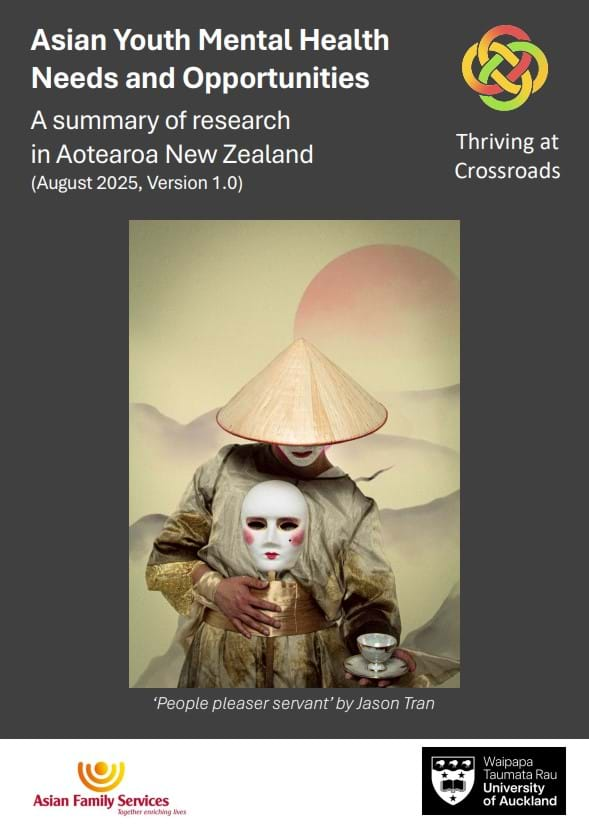A National Call to Action for Culturally Safe, Inclusive Mental Health Solutions
Wellington, New Zealand – The Asian Mental Health and Wellbeing Summit 2025, themed “Elevating Unheard Voices of Asian Youth-A Call to Action,” brought together 140 participants, including young people, policymakers, researchers, educators, funders, health professionals, and community leaders, for an event dedicated to discussing and improving mental health outcomes for Asian youth in Aotearoa New
Zealand.
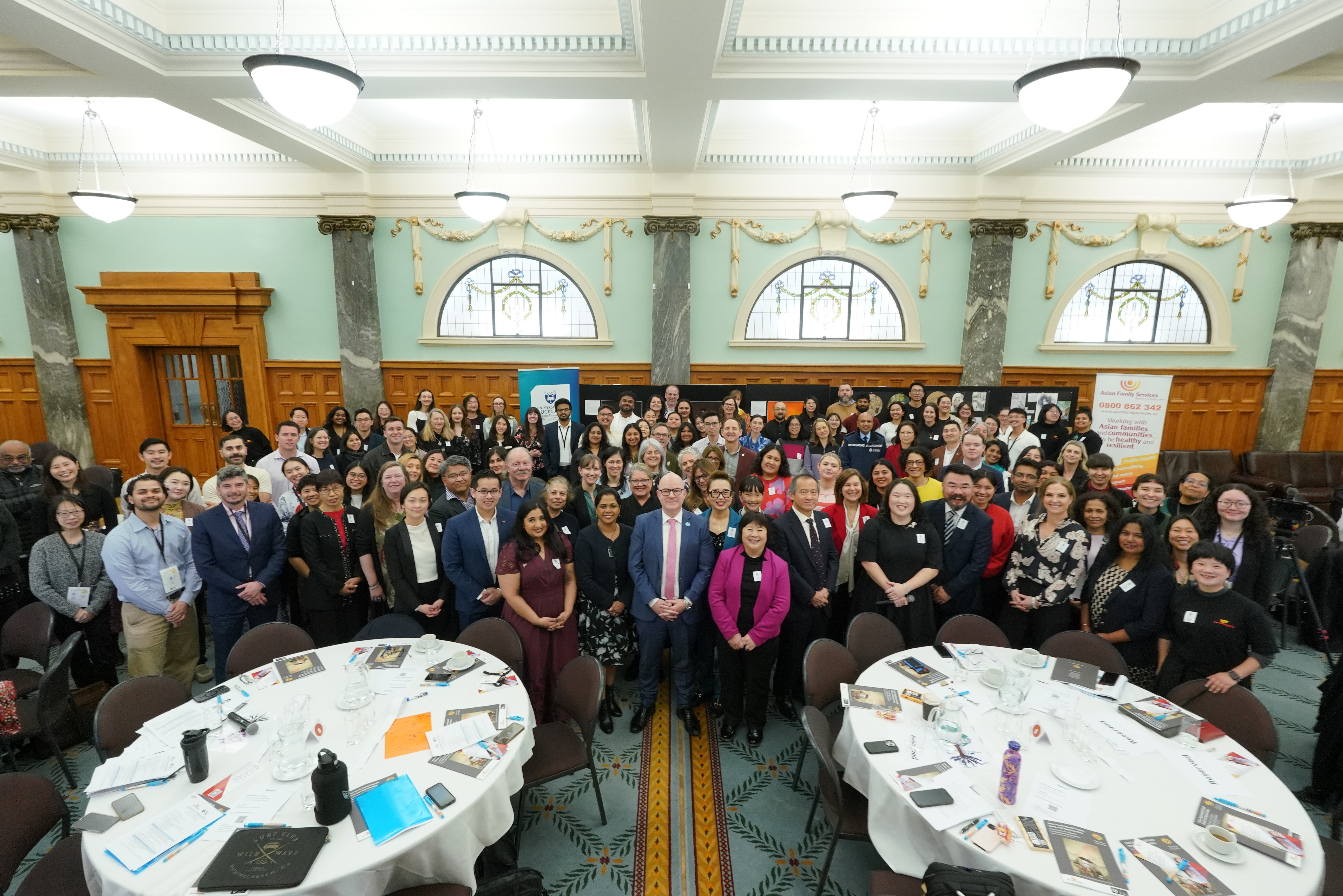
Group photo of 140 participants gathered to discuss and improve mental health outcomes for Asian youth in Aotearoa New Zealand.
As the fastest-growing demographic group in New Zealand, Asian youth have navigated complex intersections of identity, belonging, and wellbeing, often confronting unique cultural and systemic barriers. The Summit, held on the 13th of August in Parliament, responded to urgent calls for greater visibility, advocacy, and collaboration to ensure that Asian youth are not left behind in mental health policies and plans in Aotearoa New Zealand.
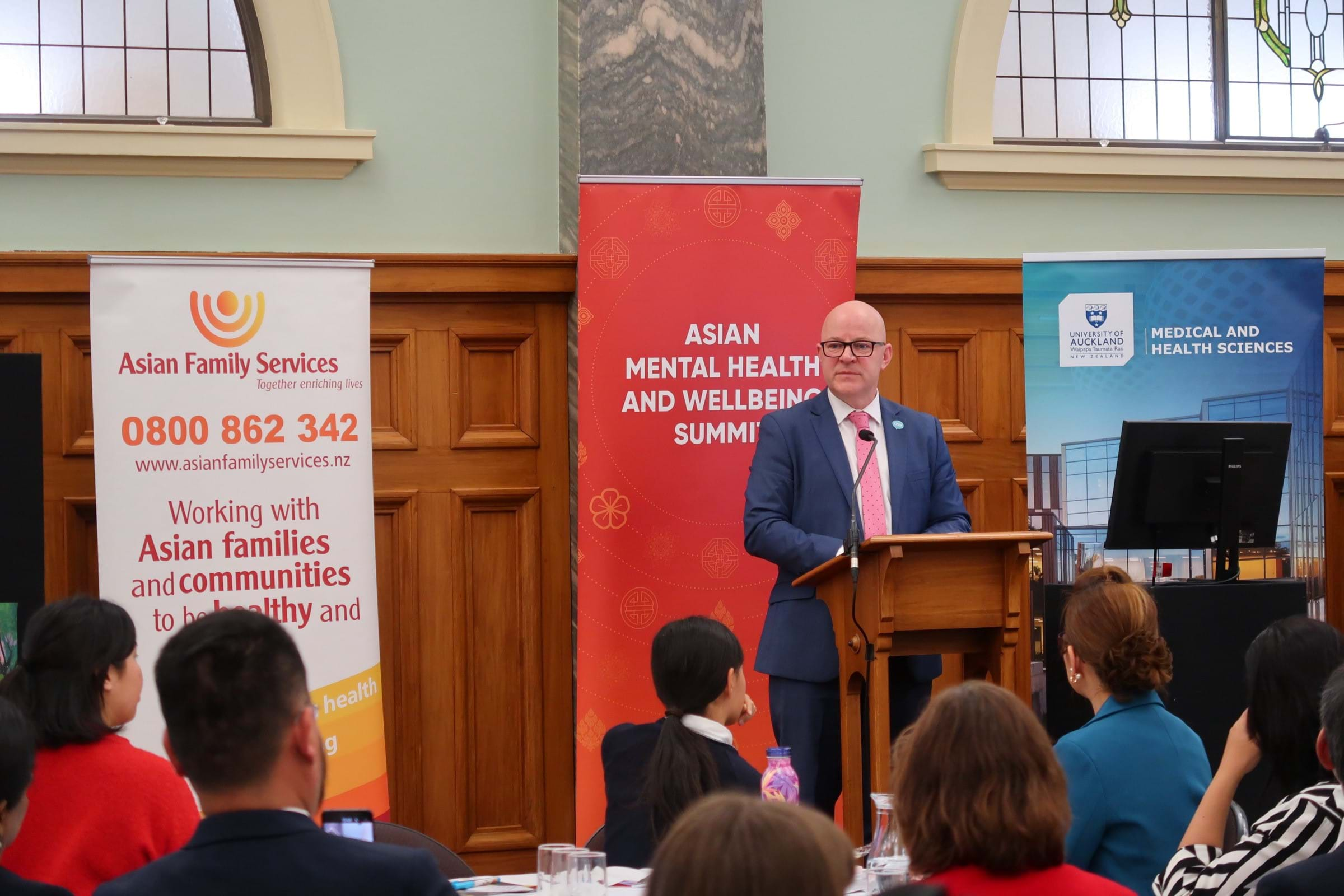
Hon Matt Doocey, Minister of Mental Health, speaking at the Summit.
The Minister of Mental Health Hon Matt Doocey addressed the Summit, highlighting the importance of greater visability, better access and more culturally grounded mental health support for Asian mental health. Further, the Minister acknowledged the importance of having an Asian perspective in the development of mental health plans and policies.
Throughout the Summit, youth-led group discussions explored critical issues to identifychallenges and co-create solutions. In addition to policy debates and strategy sessions, the event featured a powerful exhibition of artwork created by Asian youth. Thisexhibition explored themes of identity, belonging, resilience, and mental health,providing a platform for creative expression and storytelling. By centering youthcreativity, the summit affirmed the value of diverse narratives in shaping holisticapproaches to wellbeing.

Exhibition of artwork by Asian youth.
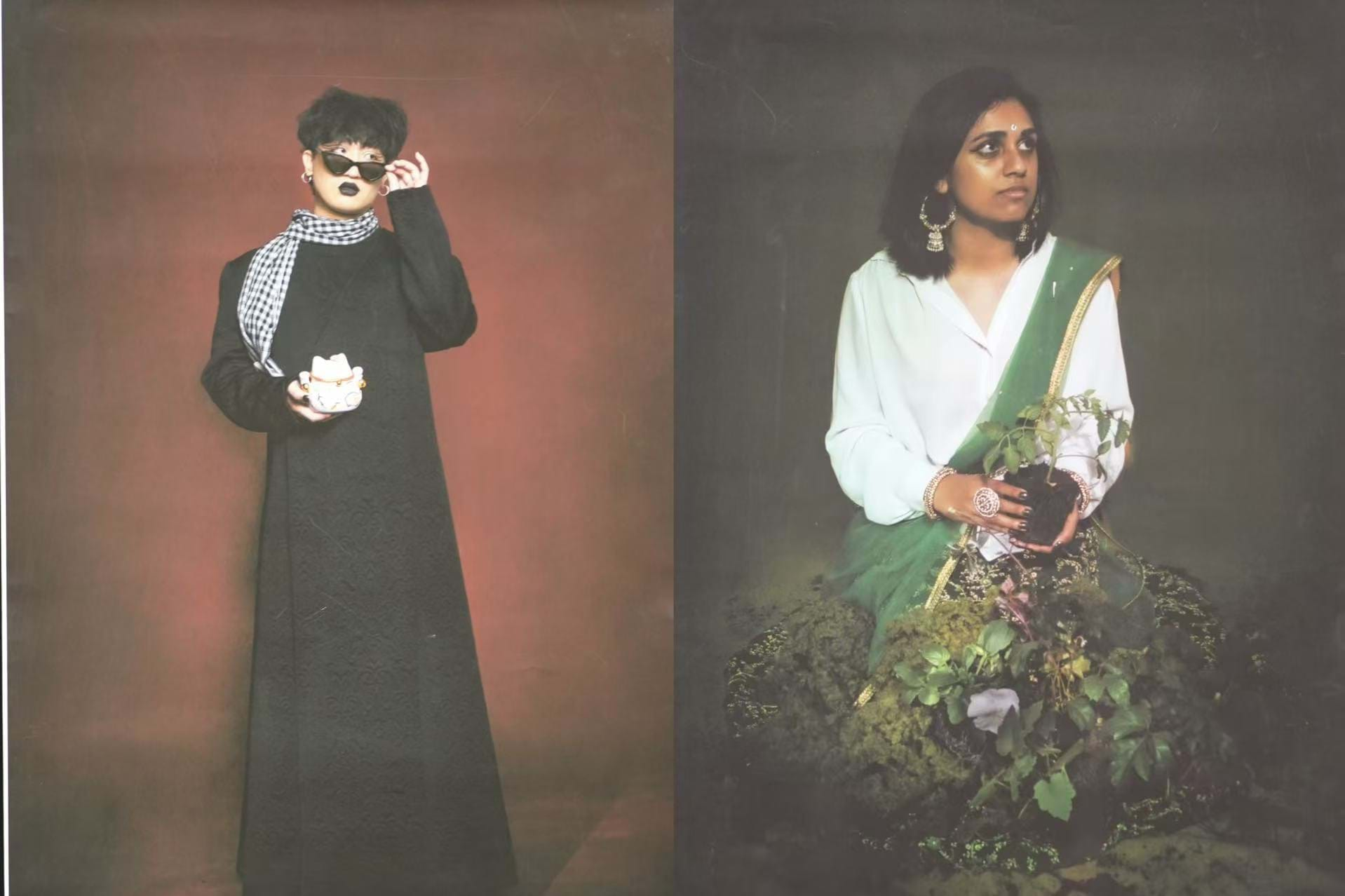
Exhibition of artwork by Asian youth.
Dr Kelly Feng, CEO of Asian Family Services, expressed immense pride in the organisation’s youth mental health service team, Kia Ora Ake, “Witnessing our youth mental health service team lead the charge in transforming the lives of Asian young people and using lived experience expertise as a catalyst for real change fills me with immense pride. During the past one year, we’ve supported 18 primary and intermediate schools in Auckland and have delivered over 1000 sessions to enhance young people’s wellbeing. Their energy, vision, and courage are setting a new standard for what’s possible when youth voices are truly heard to lead change,” said Dr Feng.
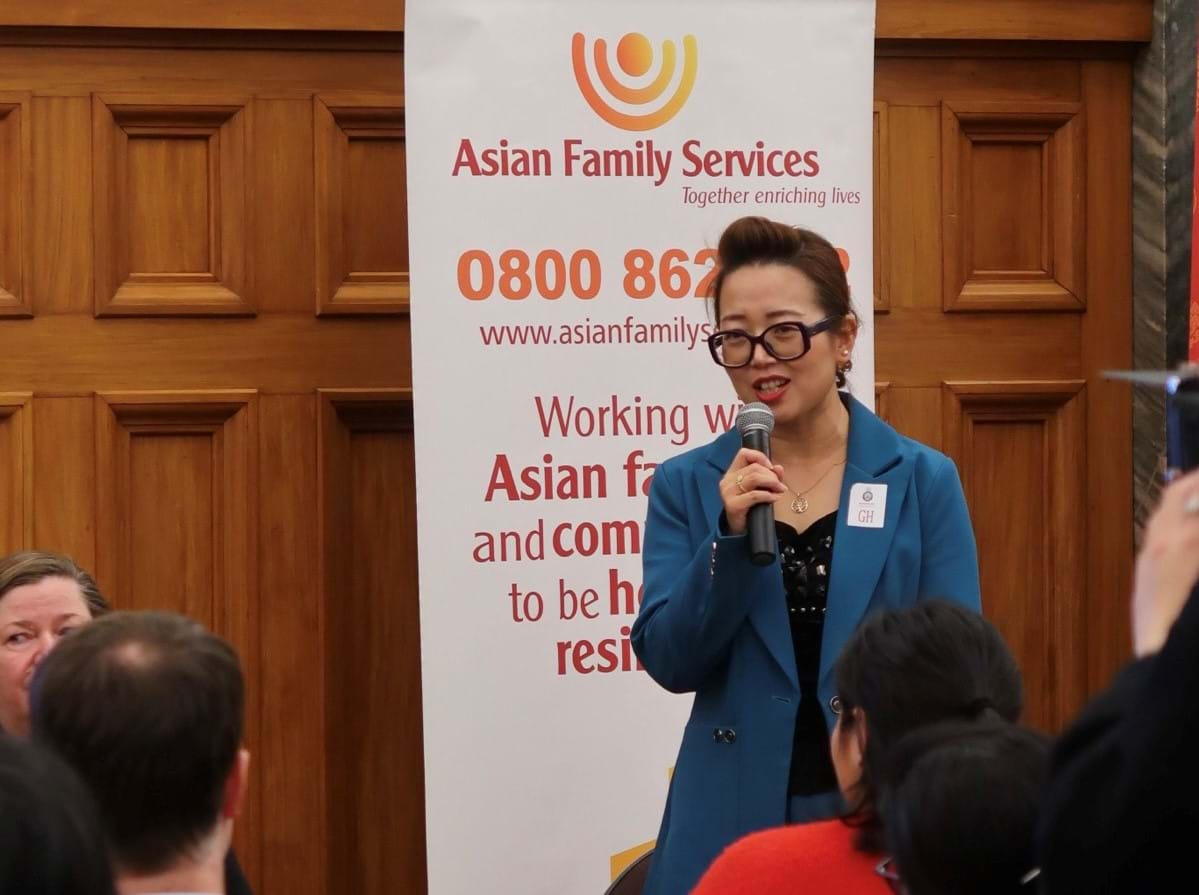
Associate Professor Roshini Peiris-John, Principal Investigator of Thriving at Crossroads, a Health Research Council funded project at the University of Auckland, highlighted the importance of systemic change for Asian youth. “The mental health challenges that Asian youth experience are complex and driven by political, economic, and social policies and practices. At a time when Asian youth stand at the crossroads of changing ideas about identity, belonging, connection, and societal expectations, we are excited to see that the Summit was a call to action for greater visibility and systemic change to enable better health outcomes for Asian youth in Aotearoa New Zealand,” said Dr Peiris-John. “When we come together, we not only share responsibility, we also unlock solutions that can benefit all young people.”
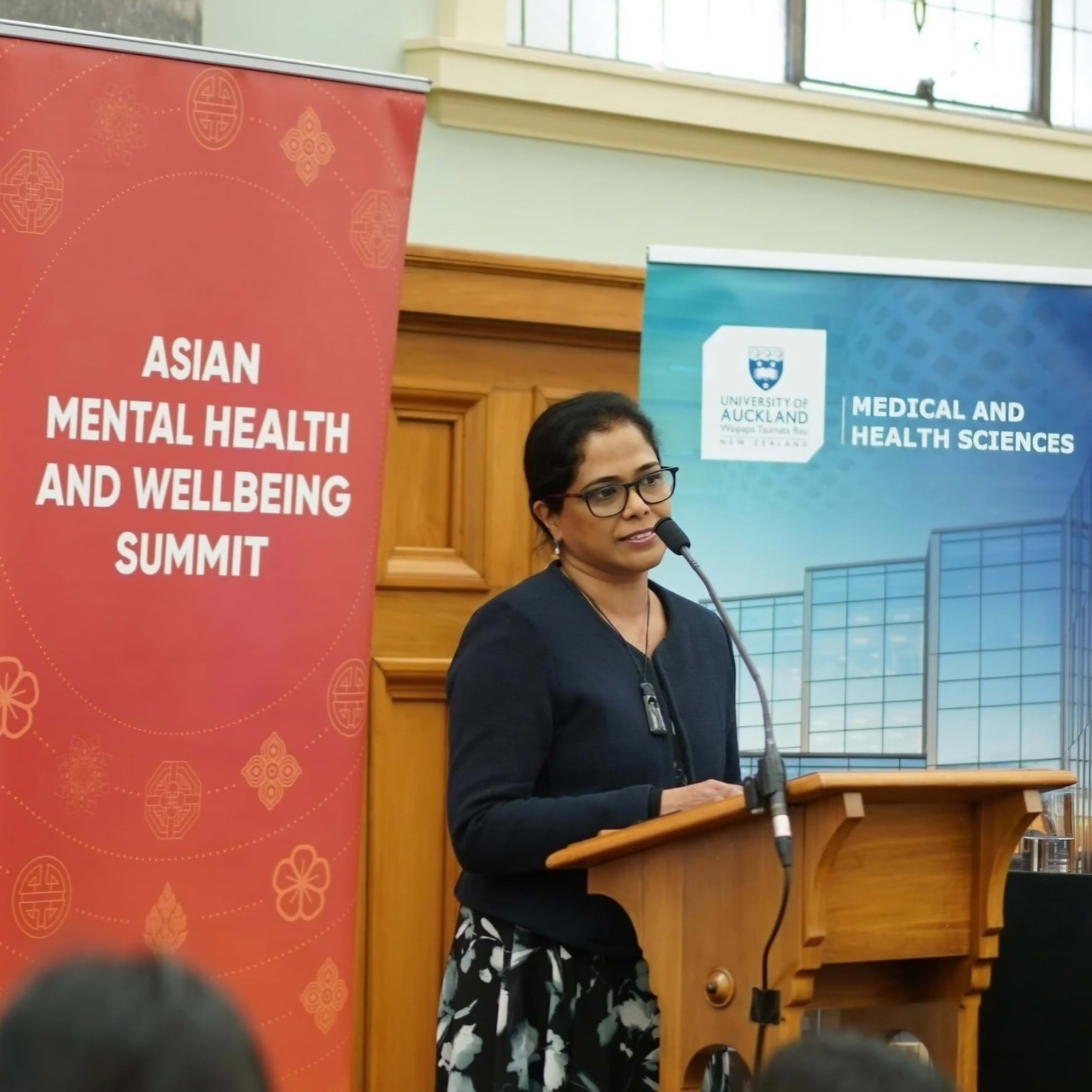
About the Organisers
The Asian Mental Health and Wellbeing Summit 2025 was co-hosted by Asian Family Services and the University of Auckland’s Thriving at Crossroads Project. Building on the momentum of last year’s successful inaugural event, the Summit continues to serve as a crucial platform for advancing the mental health and wellbeing of New Zealand’s Asian communities.
